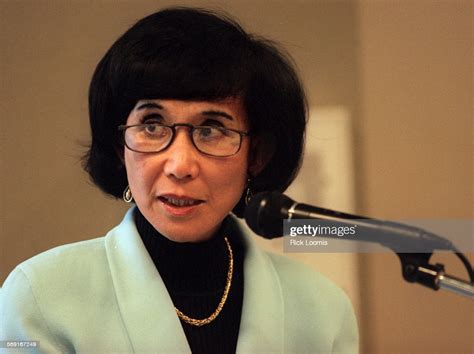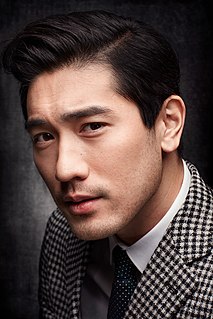A Quote by Michael Anti
One Chinese tweet is equal to 3.5 English tweets. ... Because of this, the Chinese really regard this microblogging as a media, not only a headline to media.
Related Quotes
Until the age of five, my parents spoke to me in Chinese or a combination of Chinese and English, but they didn't force me to speak Mandarin. In retrospect, this was sad, because they believed that my chance of doing well in America hinged on my fluency in English. Later, as an adult, I wanted to learn Chinese.
Social media changed Chinese mindset. More and more Chinese intend to embrace freedom of speech and human rights as their birthright, not some imported American privilege. But also, it gave the Chinese a national public sphere for people to, it's like a training of their citizenship, preparing for future democracy.
There are photographers who push for war because they make stories. They search for a Chinese who has a more Chinese are than the others and they end up finding one. They have him take a typically Chinese pose and surround him with chinoiseries. What have they captured on their film? A Chinese? Definitely not: the idea of the Chinese.
You may be right in believing that if you study hard, one day you might become fluent in English. But you will still look Chinese, and when people meet you, they’ll see a Chinese girl no matter how well you speak English. You’ll always be expected to know Chinese, and if you don’t, I’m afraid they will not respect you as much.
I have learned one thing, because I get treated very unfairly, that's what I call it, the fake media. And the fake media is not all of the media. You know some tried to say that the fake media was all the media, no. Sometimes they're fake, but the fake media is only some of the media. It bears no relationship to the truth.
I was so glad that I was able to use my skills of speaking Chinese in a film where the character is Chinese, because sometimes you actually don't get to do that. Especially in Hollywood blockbusters today because they want everyone around the world to understand what is happening, so they usually want you to speak English.
I grew up bilingual, I grew up speaking Chinese in the home, Mandarin Chinese with my parents, and I learned English because I was born and raised in the U.S. That really gave me an edge. I understand that, from the experts, if you grew up bilingual, your brain kind of gets wired to accept a new language. It was a very serious deal because not only did I have to learn Russian to a high degree in order to function as a necessary member of the crew, but also I knew that the Russians that came over that made an effort and had some success in learning English, those were the folks we trusted.
































